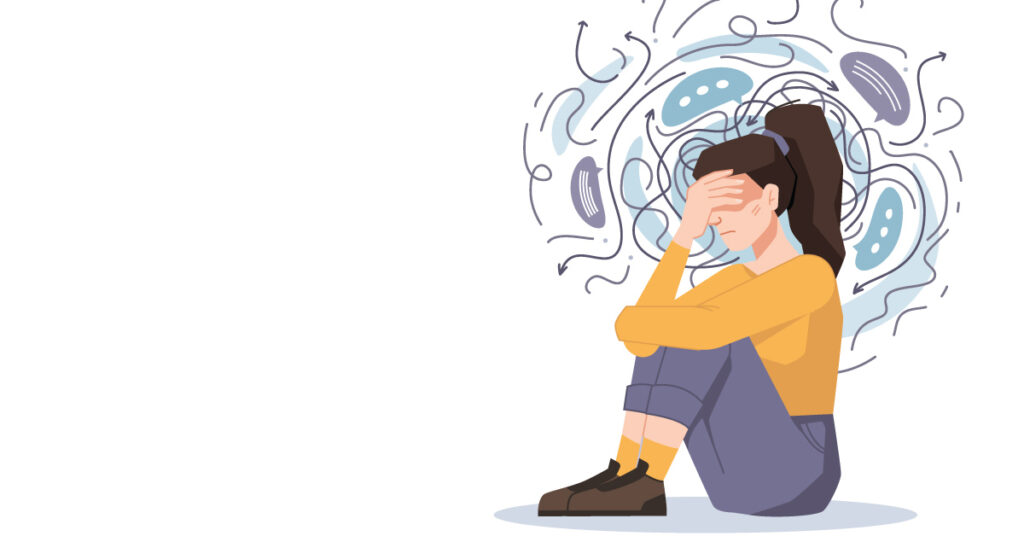When prescriptions and therapy have had limited effect, plenty of people turn to natural remedies for depression. It’s more common than you might think — according to the most recent study by the National Institute of Mental Health, as many as 21.0 million adults in the United States alone had at least one major depressive episode in 2021.
While different methods exist to tackle depression, natural cures for depression can be a source of solace and relief. This article aims to guide you through some herbal and dietary supplements that, when used safely, can be beneficial for those battling depression.
Introduction to Natural Remedies for Depression
Natural remedies for depression are nature-derived substances believed to enhance mental well-being by promoting overall health. They often work by supporting the body’s internal mechanisms, leading to improved function and, in turn, positively affecting emotional health.
These remedies have a long history. Take ancient Ayurvedic traditions, for instance: Using natural elements for their mood-enhancing properties is a concept that’s been around for millennia.
That being said, these natural remedies should never take the place of a formal diagnosis or treatment. A trained health care professional can help you determine the best course of action for your recovery.
Exploring Herbal and Nutritional Approaches
Herbal and nutritional remedies play an important role as supplementary treatment options for depression. These natural antidepressants, when combined with professional medical care, can enhance the healing process and offer support for those grappling with depression.
Popular Herbs for Depression
Nature offers a variety of herbs that are commonly used to provide support for individuals coping with depression.
Of several herbs known for their potential antidepressant attributes, here are a few notable ones:
- Chai hu
- Saint-John’s-wort (Hypericum perforatum)
- Turmeric (Curcuma longa)
- Saffron (Crocus sativus)
- Lavender (Lavandula angustifolia)
Nutritional Approaches to Combat Depression
Fueling your body with the right nutrients can result in significant improvements in mood and overall well-being, making diet an essential factor in managing depression.
A balanced diet rich in essential nutrients can significantly impact mental well-being. Nutrients like vitamin B complex, vitamin D, magnesium and zinc have demonstrated their capacity to help improve mood and alleviate depression symptoms.
By prioritizing these elements in your diet, you can establish a robust, nutrition-focused strategy against depression.
Lifestyle Changes to Support Mental Health
Your daily habits and lifestyle can impact how you feel, and tweaking the smallest things might help brighten your mood. Multiple studies show that a few positive lifestyle changes could make a big difference in managing depression symptoms.
Here are six key changes that can help fortify your mental well-being:
- Keep a regular routine. Sticking to a consistent routine creates a comforting pattern and can help anchor you if you feel life is getting chaotic.
- Exercise regularly. Even gentle exercises like walking can boost endorphin levels in the body, fostering a more positive outlook.
- Eat healthy. Have you ever heard “You are what you eat”? Though there’s no one-size-fits-all diet for depression, focusing on healthy foods — especially those rich in omega-3 fatty acids and folic acid — can aid in managing symptoms.
- Get adequate sleep. Good sleep hygiene is vital. Maintaining a consistent sleep schedule and creating a restful environment can improve sleep quality, potentially easing depressive symptoms.
- Challenge negative thoughts. Depression can sometimes take root from a single negative thought that multiplies and overtakes your outlook. Observing and challenging your negative thought patterns can help you cultivate a healthier perspective over time.
- Try relaxation techniques. Methods like deep breathing or meditation can help you relax and deal with stress more effectively.
Integrating Natural Remedies with Professional Guidance
While natural remedies work wonders for some, everyone is different, and clinical depression can be difficult to treat. If you’ve tried natural cures for depression and still find yourself in a rut, it might be time to reach out to a health care professional.
Professionals can provide you with a diagnosis and offer tailored treatment plans, including medication if required. This more intensive care combined with natural remedies can holistically address your symptoms and lead to a better quality of life.
The Mental Health Hotline offers a supportive, guiding hand in this journey. We work with an extensive network of reputable mental health providers nationwide to make helpful referrals and guide you down the path to recovery. Reach out to us 24-7 to get started on the road to a happier life.
